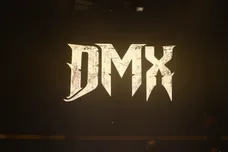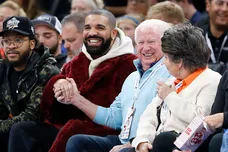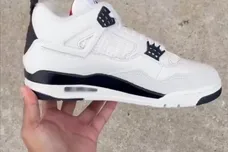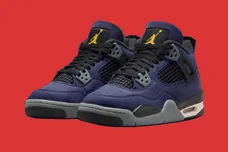Hip-hop is in a constant state of flux. Between ever-changing trends, social media stars, sounds and era-defining crews, constants are hard to come by. This means that in the time since hip-hop has exploded in popularity, it’s become near impossible to enforce any sort of "rulebook." So, where the social and political climate of the time has governed the direction of other genres, hip-hop has traditionally kept its own counsel and developed a unique code of ethics in which there's very few cardinal sins.
So, naturally, as the world has grown accustomed to viewing life and art through the lens of "cancel culture," hip-hop has developed its own outlook. While some public figures have watched their prospects take a nosedive for relatively small indiscretions, in hip-hop, there’s been a certain wariness to participate, by both fans and artists respectively. This raises the question of how exactly hip-hop interacts with the notion of "cancel culture," if at all.
To break this down, we must first look at how hip-hop tends to be much less reactionary when any sort of allegation comes to light. Before simply expelling an artist amid a scandal, the rap world tends to wait, in order to hear what someone has to say-- whether that be via song or via social media commentary. To cite a recent example, someone such as Blueface, who was accused of being a “predator” after footage emerged his house of women sleeping in bunk beds and getting tattooed at his request, would’ve likely seen an uproar, without any platform to provide an explanation, if this where in any other mainstream-associated genre.
By the same token, the news that Lil Mosey is set to stand trial on rape charges was more readily met with comedy than it was any kind of mass condemnation. In any other medium, this would likely be the point-of-no-return. But if this 19-year old MC were to release a single tomorrow, there’s very little doubt that it’d gain a lot of traction across his 15 million-plus Spotify listeners.
However, that doesn’t mean there are no possible lines to cross in hip-hop. Perhaps they just differ from the career-ending exploits of other celebrities.
Case in point, the ostracization of the always-controversial 6ix9ine. Seen as a polarizing figure from the minute he emerged with "Gummo," 6ix9ine’s endless trolling meant that he was never universally-beloved, even before he turned state’s witness and forever defamed his gangster image.
6ix9ine performing live in NYC with Lil Yachty and others, 2018
Nonetheless, the allegations that he’d sexually assaulted a minor at the outset of his career, did little to deter everyone from Lil Baby, Lil Yachty, A Boogie Wit Da Hoodie and Fetty Wap, to Tory Lanez, Kanye West and Nicki Minaj from aligning themselves with him, prior to his courtroom appearance. Now, in the aftermath of his decision to break the unwritten rule of hip-hop, a laundry list of artists have declared that they want nothing to do with him.
"Before he snitched? Hell yeah, I would’ve done a song with him. Yeah, it would’ve brought me some bread," DaBaby told Big Boy in 2019. "I would be a bad businessman to turn that down."”
Clearly, it no longer really matters how many views 6ix9ine could bring in, because there is an over-arching notion that any rapper who appears on a song with him, would by extension be endorsing what he did in court-- snitching-- and would risk being tarnished with the same label themselves. Thus, 6ix9ine went from a profitable-but-problematic star to a complete pariah. It's unsurprising then, when his post-prison project Tattle Tales saw the artist scale back his features, going from one or more on almost every Dummy Boy song (!), to securing just five over the course of thirteen songs.
"Hell motherfucking no. I don’t even want to be next to that man," Bobby Shmurda declared firmly at the prospect of following up on their “STOOPID” collab to VladTV. "These motherfuckers would have everybody locked up. That’s why I tell these kids. These entertainers just entertainers. They ain’t living that shit they are talking."
Where Shmurda, who actively took more time in order to grant Rowdy Rebel a lighter sentence, was vocal in his distaste of the colourful rapper, other former collaborators, such as A Boogie Wit Da Hoodie, comically dodged the issue in the hope that people would simply forget that they were ever associated.
Now viewed as conduct unbecoming of any rapper with respect for the culture, the ill-will associated with 6ix9ine is so pronounced that in the wake of Nicki Minaj choosing to link up with a post-prison Tekashi for "TROLLZ," YG ruled out ever working with the Queen Barbz again.
"I don’t know, my feelings was hurt," the rapper behind anti-informant anthem "Stop Snitchin" revealed to Bootleg Kev. "Yeah, I'm cool."
MICHAEL CAMPANELLA/Redferns/Getty Images
From PnB Rock proclaiming that he hates "this new generation" after someone suggested playing a "rat’s" music in his presence to even hip-pop crossover star Post Malone gently rebuffing the idea of a collab, 6ix9ine has been rejected by hip-hop with a uniformity that resembles what you’d usually see in mainstream cancel culture.
And when it comes to leading the charge, it’s those who want to safeguard the sanctity of the genre, and its roots, that are generally most insistent about his removal.
"6ix9ine’s] history is erased," declared Dipset icon Jim Jones in a fiery interview. "We not even gon' say what we liked or what we [don't like]. Screw him. He did some actions that he can't come back from… I grew up in [an] era where certain things...you cannot come back from… You black, you black forever. You a rat, you a rat forever. Ain't no coming back from that."
Jim Jones with 6ix9ine in NYC, 2018 - Johnny Nunez/WireImage/Getty Images
This is a sentiment that was echoed by 50 who claimed that "it’s just against the way I grew up." Hip-hop’s anti-snitching stance is so ingrained across the generations that 21 Savage even roped Morgan Freeman in to discuss how they were the most foul creatures to ever walk the earth on Savage Mode 2.
Despite the vitriol spouted against him by his colleagues, as far as the mainstream consumer goes, this is all part of his shtick.
In a neat summary of the disconnect between hip-hop’s traditional fanbase and its suburban audiences, grizzled New York vet Maino explained why 6ix9ine's cancellation within the culture would have little bearing on his star power in other sectors of society.
"I think he gon' make music for the people that love him. A lot of people ain’t stopped playing his music. What he did, didn't stand right with me, but he ain’t doing with me either though," Maino detailed. "Nobody cares about him snitching. His fans would’ve done the same thing. People in the regular world, they don’t have the same values and morals as I have. They don’t have the same code as I do."
Maino’s comments tell you everything you need to know about the differing approaches to cancel culture within hip-hop and the wider world.
Hip-hop’s approach to cancel culture-- a certain openness for dialogue, understanding, or even overlooking altogether-- vastly differs in outcome than the rest of the entertainment sphere. And, when you consider that everything else about the genre, from its origins to the socio-economic background of many of its stars, this shouldn’t come as a surprise.







